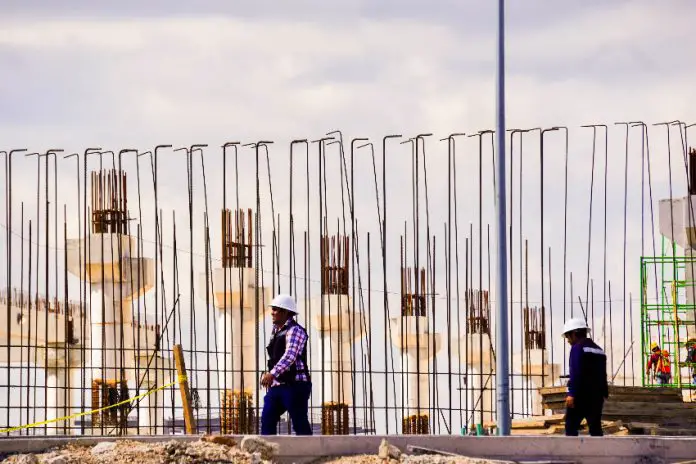Mexico added almost 85,000 new formal sector jobs last month, the best result for April since the current government took office in late 2018.
The Mexican Social Security Institute (IMSS) said in a statement on Monday that the number of people in formal sector positions increased by 84,857 in April to just over 22.37 million.
The month-over-month job creation figure was the fourth highest on record for April, below the numbers registered in 1998, 2002 and 2018.
In the first four months of 2024, Mexico added 349,816 new formal sector jobs, about three-quarters of which are permanent positions. The figure is 22% lower than that recorded between January and April of last year.
IMSS also reported that the size of Mexico’s formal sector workforce increased by 553,911 positions over the past 12 months, a 2.5% increase compared to the previous 12 months.
The sectors that recorded the biggest increases in the size of their workforces were transport and communications (+7%), construction (+5.2%) and retail (3.5%).

The only sectors that lost workers over the past 12 months were agriculture (-2.4%) and mining (-1.6%).
The workforce in Quintana Roo — which ranked first for economic growth among Mexico’s 32 federal entities in 2023 — increased by 6.5% over the past year, the highest percentage of any state.
Hidalgo, México state and Chiapas also increased the size of their workforces by over 5%.
Three states lost formal sector jobs over the past year. They were Tabasco (-9%), Chihuahua (-0.5%) and Sinaloa (-0.1%).
IMSS reported that the average daily base salary of formal sector workers was 578 pesos (US $34) at the end of April.
Unemployment hits record low in March
The national statistics agency INEGI reported in late April that Mexico’s unemployment rate declined to a record low of 2.3% in March. The unemployment rate was 2.5% in February and 2.4% in March of 2023.
INEGI said that 59.8 million people out of an “economically active population” of 61.2 million had jobs in March, an increase of 800,000 compared to the same month of 2023.

Of the 59.8 million people in jobs, 3.9 million, or 6.5% of the total, were underemployed, INEGI said.
Well over half of Mexico’s workforce works in the informal sector, meaning that they don’t pay tax and don’t have access to benefits such as health care through IMSS or paid vacations.
The country’s vast army of informal workers includes street vendors and many domestic workers, even though the Supreme Court passed a law in 2022 requiring household employees to be registered with IMSS.
Jesús Anacarsis López, deputy director of analysis at Banco Base, said earlier this year that reducing the informality rate is “one of the most significant challenges of the Mexican labor market.”
With reports from La Jornada and El Economista
